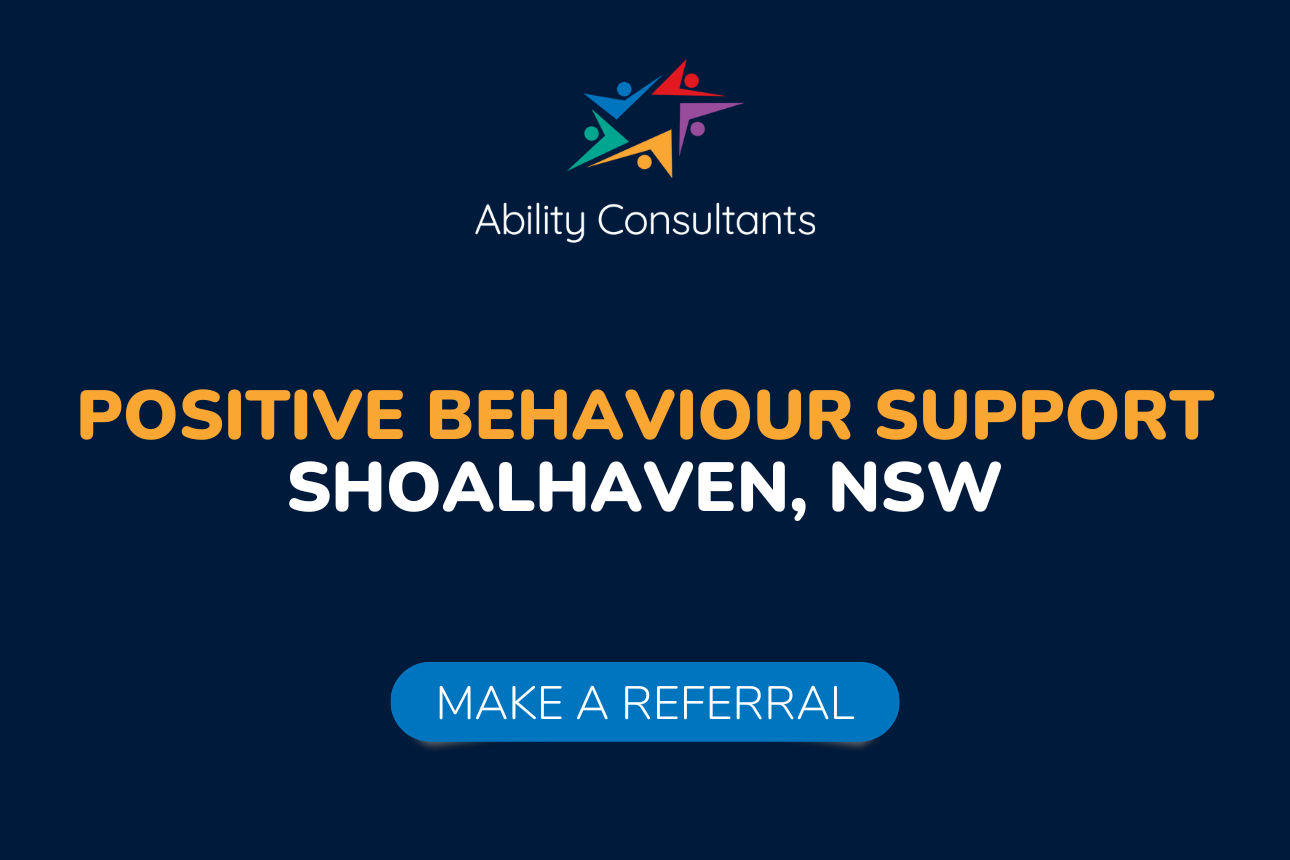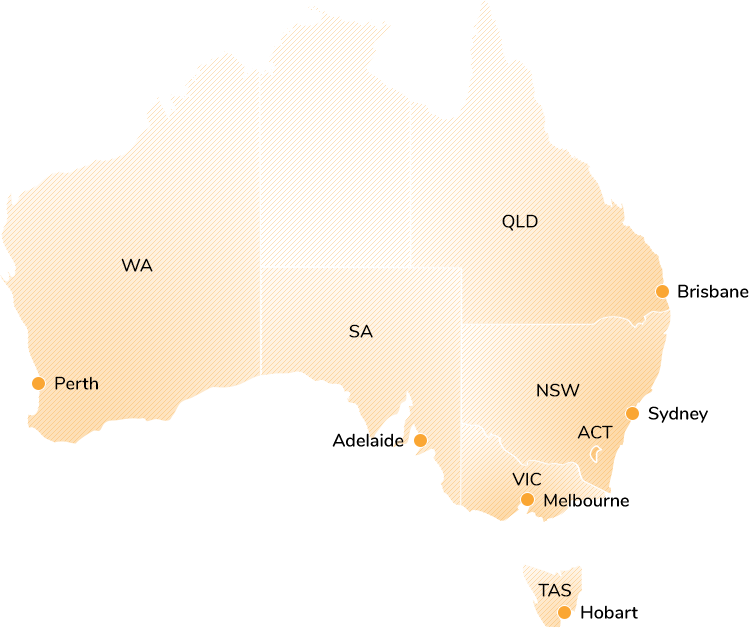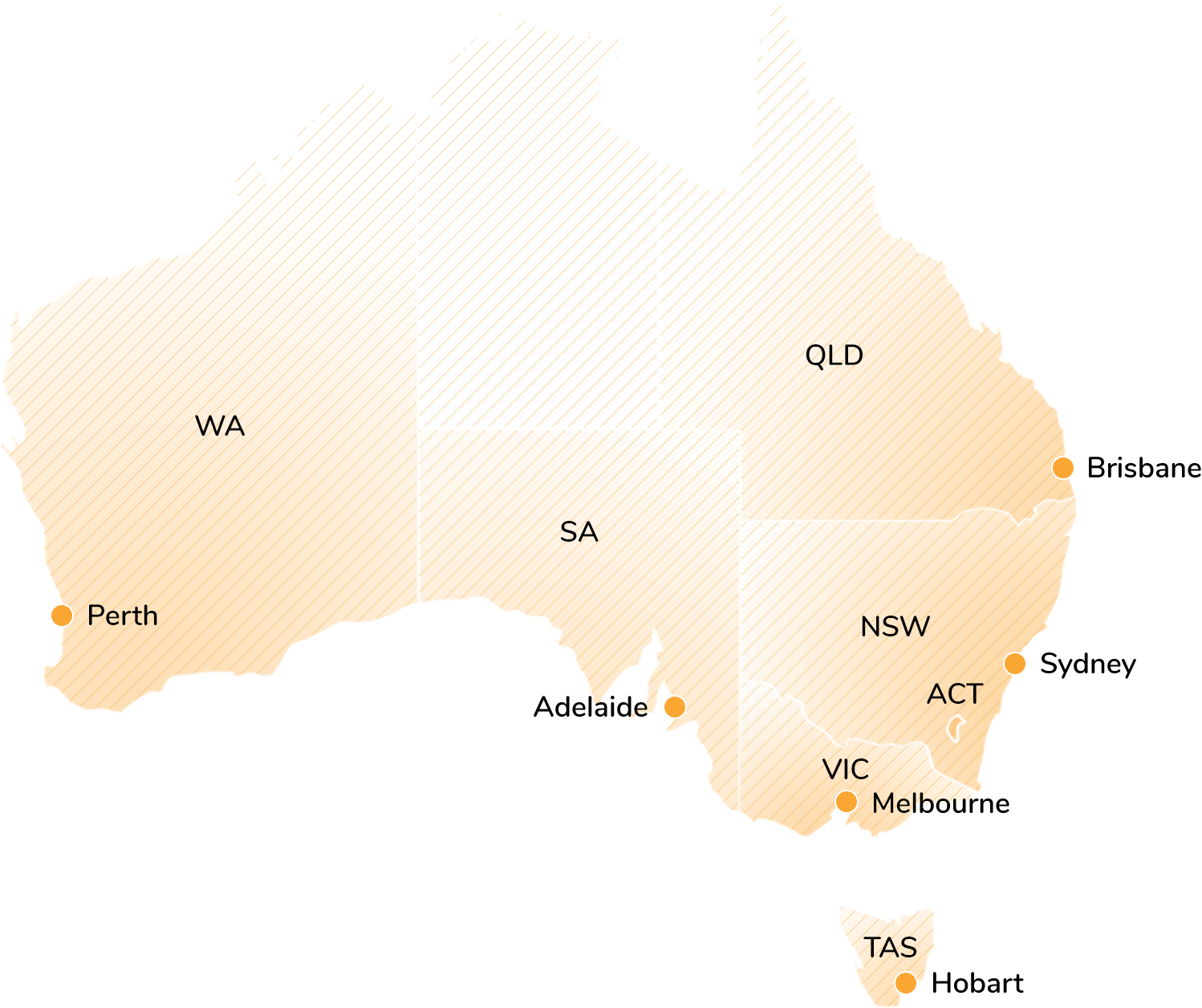Meet Stacey Davidson, Positive Behaviour Support Practitioner in Shoalhaven

Stacey Davidson is one of our incredible positive behaviour support practitioners on the South Coast of New South Wales. Stacey is based in Shoalhaven and has supported NDIS participants all the way from Woonona down to Ulladulla.
Stacey has over 20 years experience supporting vulnerable people in the Shoalhaven and Sydney communities. Her past roles as a disability support worker, social educator and parent educator have enhanced her ability to deliver positive behaviour support to NDIS participants. Stacey has a passion for supporting clients to increase their independence, reducing the stigmatisation of disabilities and is an advocate for social justice and equality.
Stacey completed a Bachelor of Social Work through the University of Wollongong and completed a Graduate Certificate in Positive Behaviour Support through Flinders University. She’s currently studying a Graduate Certificate in Managing Youth Self-Harm and Suicide and has plans to complete a Graduate Certificate in Dementia. Stacey’s ongoing formal learning has strengthened her ability to deliver impactful change in the lives of her clients.
Today we sat down with Stacey to find out more about her work as a positive behaviour support practitioner in Shoalhaven.
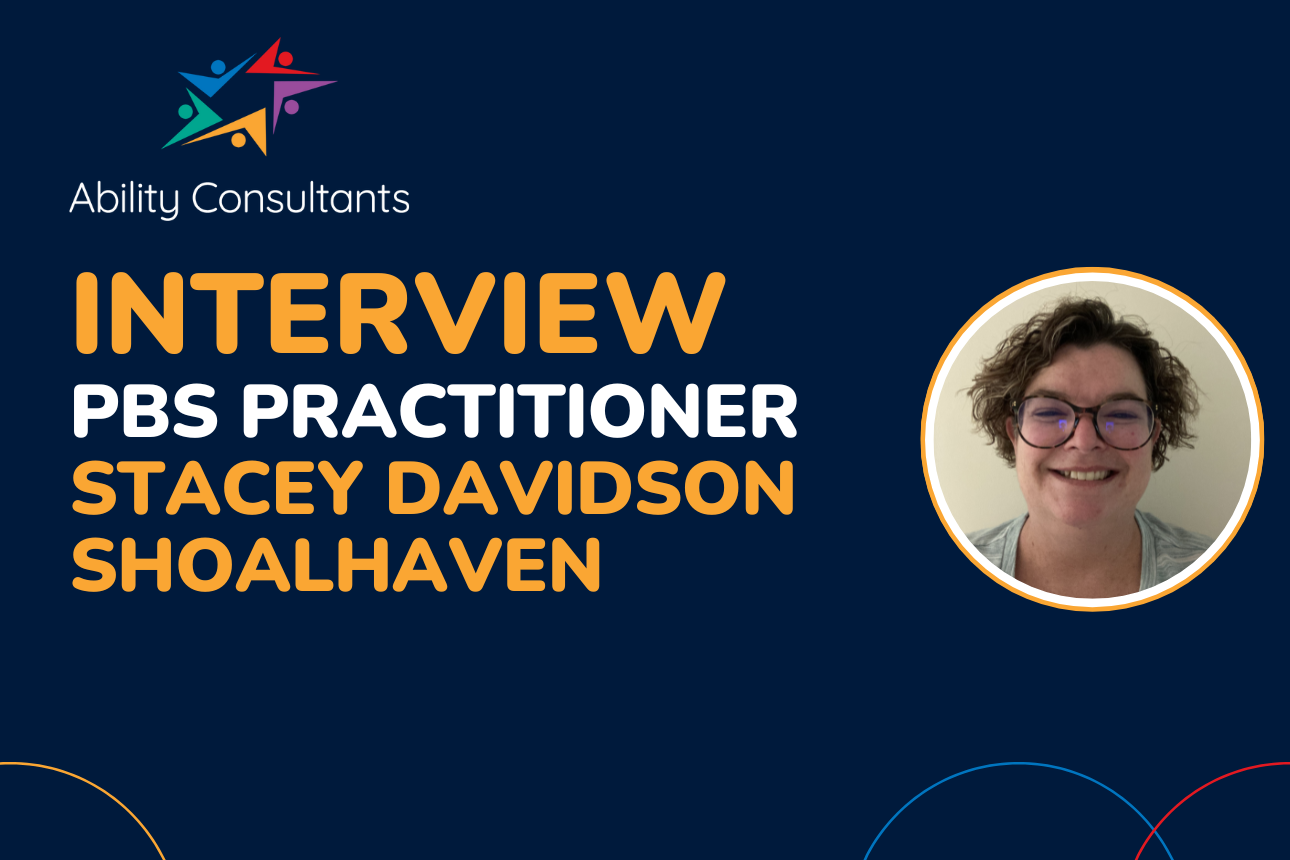
Positive behaviour support in Shoalhaven
Stacey, tell us about a typical day as a behaviour support practitioner in Shoalhaven?
There are no typical days and that is what I love about this career. Each day is different, varied and so individualised. There’s a great deal of autonomy in my role, I’m responsible for making plans for my day — from staying home to write reports or going out visiting participants all day.
I like to provide my participants with face to face interactions. I feel that I’m able to deliver a more beneficial service that way. I’ve supported participants in Woonona, north of Wollongong, to Ulladulla in Shoalhaven. My participants range from seven to seventy years of age. I attend visits at schools, homes, accommodation services, aged care facilities and community participation services.
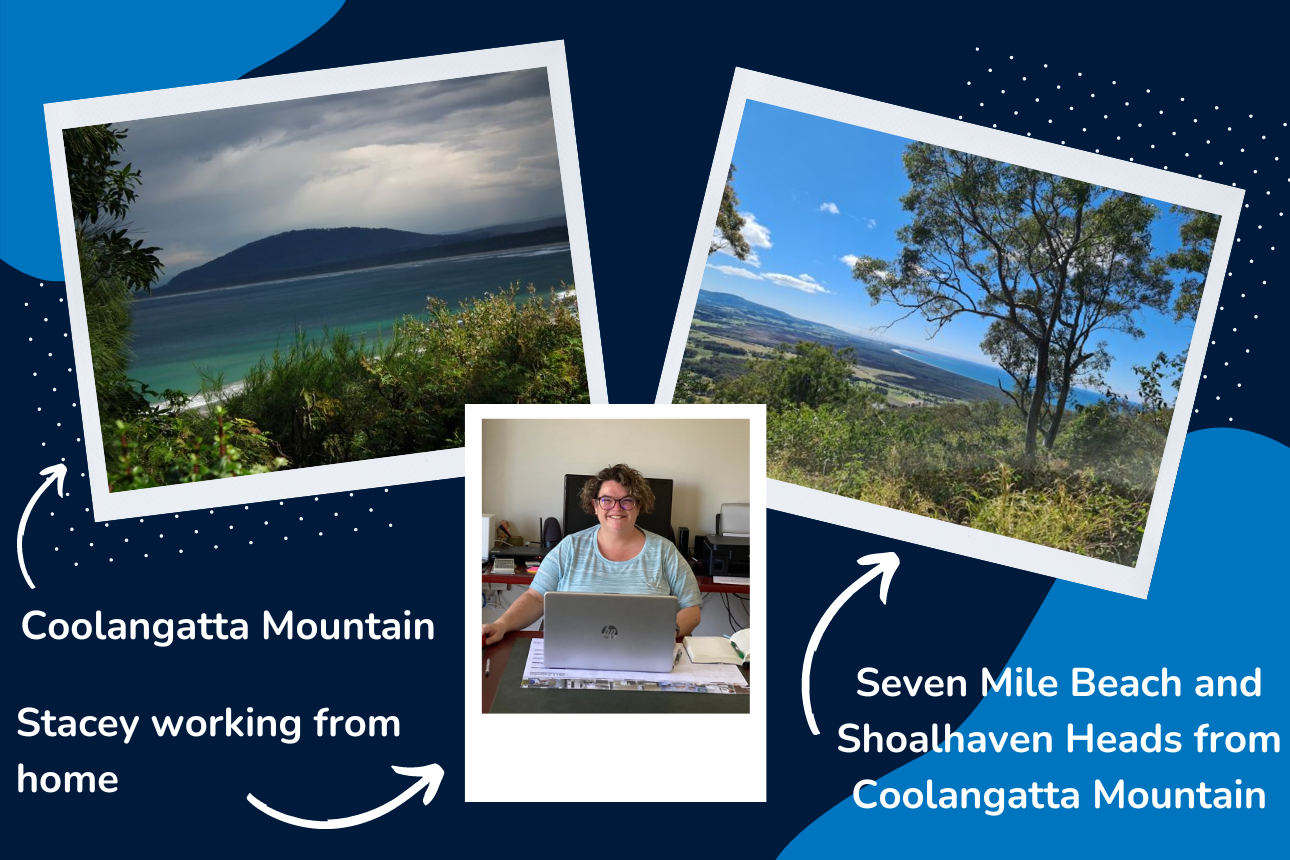
Why does positive behaviour support matter so much? Tell us about the impact it can have on people with disabilities.
One of the first participants I worked with was hospitalised in Queensland when I started working with him. He had been hospitalised for almost a year when I was asked to support the transition for him to move in with his brother and sister-in-law in our local community here on the South Coast of NSW. While in hospital he was highly medicated with psychotropic medication and PRN psychotropics which were used multiple times a day, when they deemed he was having a behaviour.
When I made contact with the hospital, I was told by the hospital social worker that I needed to “talk the family out of the move as it would never work”. I informed them that the family and participant were happy to give this a try and proceed with the transition plan. The participant’s brother drove up to Queensland to bring him home and I put safety plans in place with his brother in case of an emergency while driving or when they stopped for the night.
Both men still talk about what a great road trip they had coming down to the “new house”. By month two we had removed PRN psychotropic medication and we were starting a reduction process for the regular psychotropics. This participant is accessing the community on a daily basis with community participation support. This participant is fully engaged with his positive behaviour support helping me to write his plans, work out strategies and then assisting by providing training to his support staff.
You spent some time as a disability support worker — can you tell us how this experience has enhanced the way you deliver positive behaviour support?
Being a disability support worker and working with positive behaviour support practitioners, I learnt very quickly what I did like and didn't like about how they worked. I’ve been able to incorporate this into my service delivery to hopefully make a positive impact with both the participants and support people.
You’ve also worked as a social and parent educator. How did these jobs and experiences help you prepare for your role as a behaviour support practitioner?
This position helped me develop skills and knowledge in child development and how to engage children and parents in strategy development.
In your 20+ year career, what is your number one highlight?
When working as a disability support worker with participants, helping them to become as independent as possible is a real goal of mine. So in that vein, I had a participant who would either turn off both taps or turn off the cold water in the shower. My goal was to support her to be able to turn off the hot tap and then the cold tap in the shower. Every morning and night for six months I could be heard in the bathroom saying hot tap off, cold tap off.
One night six months in, this participant said to me, “hot tap off” and independently turned it off first. You have to understand that I am a very excitable person — this made me laugh, jump up and down and almost cry. The next thing that happened was I was in a bear hug, under the cold shower with my participant as she was jumping up and down laughing. All the staff in the house at the time came running to see what had happened as I must have been squealing very loud as it was cold.
When I worked as a disability support worker, I worked in a house where our participants would return from community participation without eating their lunch — their lunch would always come back with them. I thought about this and decided to trial that they would make their own lunch and see how that would go. Each time I was on shift the participants would make their own lunch and they would eat what they made (one would only have a butter sandwich, but it would be eaten). Sometimes simple solutions work out well.

From social work to positive behaviour support
Can you tell us about your social work degree and how this helped you in your role as a positive behaviour support practitioner?
I rely on a lot of my studies to inform my practice. As much as I didn't really like when I was learning about all the theories (I still refer back to Mim’s Theories Tree — thanks Mim), it is the backbone of my practice.
In my social work degree, I gained knowledge around human development, ethics, community work, working with individuals and families, social work practice and skills, children, families and their wellbeing. This knowledge informs strategy development, pitch and delivery of service and ultimately success or failure.
What are some of the skills that social workers develop that can be transferred to the role of behaviour support practitioner?
We’re able to frame ethical dilemmas from complex practice situations and use a variety of strategies to resolve dilemmas, taking into account the multiple stakeholder views and regulatory frameworks.
We’re also able to look at and work within multidimensional assessment, case management and interventions with individuals and families using contemporary counselling approaches. Particularly the focus around skills in engaging, interviewing and working with individuals and families, employing contemporary models of practice such as strengths-based, solution-focused, narrative therapies, cognitive behavioural therapy and motivational interviewing.
We’re adept at working with individuals, families and groups in a variety of fields of practice using complex approaches to interviewing, prevention, multi-dimensional assessment approaches, interventions and evaluation. Practitioners develop professional values, ethics, social justice and responses to diversity as well as practice methods and theories, which are skills used everyday in the delivery of positive behaviour support.
How do individuals, support coordinators and other referrers access positive behaviour support in the Shoalhaven area?
NDIS participants, their families, support coordinators and other referrers can make a referral for positive behaviour support by completing our referral form. At the moment, our wait time is quite short for Wollongong, and we’re looking forward to onboarding more practitioners in Shoalhaven in the next couple of months.



